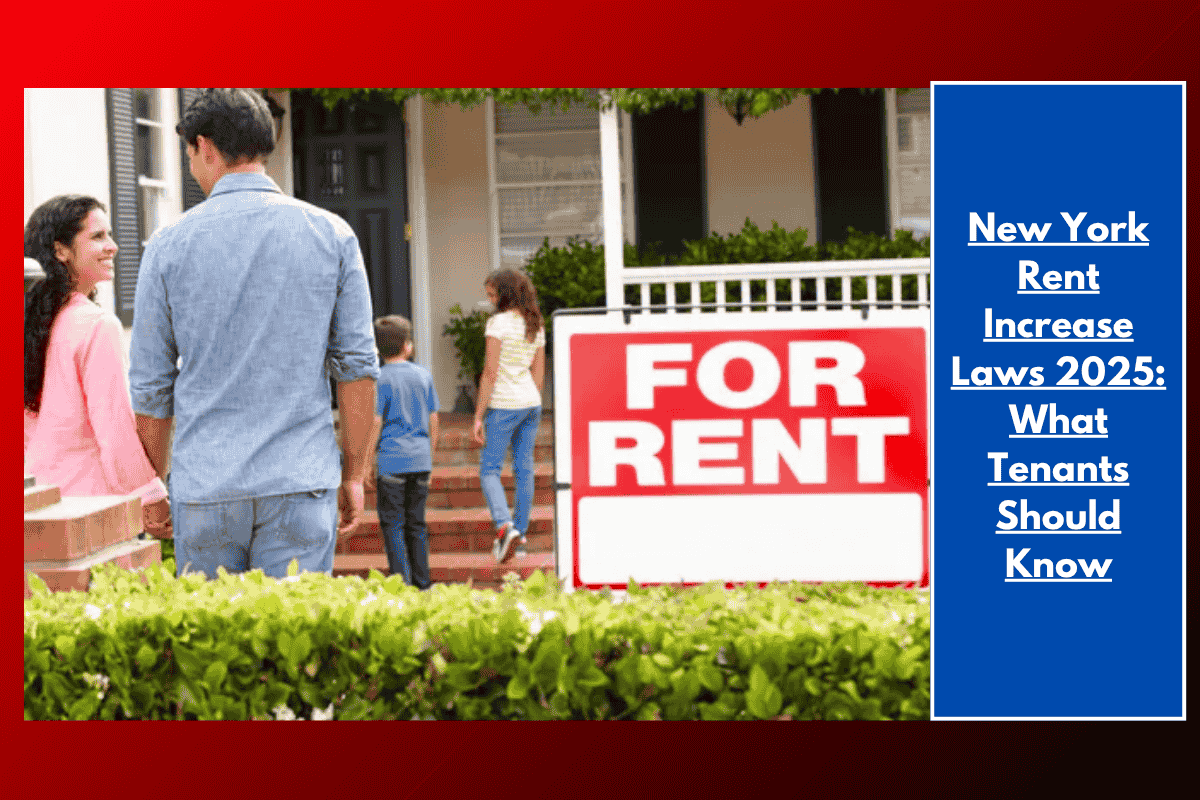Rent increases are a significant concern for tenants across New York, especially as the cost of living continues to rise. In 2025, tenants need to be aware of their rights and protections under New York’s rent control laws. These laws are designed to offer some stability to renters while balancing the needs of landlords. This guide will break down what tenants should know about rent increases in New York in 2025, including statewide regulations and the impact of local laws in cities like New York City.
Overview of New York Rent Control and Rent Stabilization
New York has two primary systems that govern rent increases: rent control and rent stabilization. While rent control is more restrictive and applies to older buildings, rent stabilization affects many buildings built before 1974 and provides more moderate protections.
Rent Control
Rent control laws in New York City apply to buildings constructed before 1947 and limit the amount that landlords can increase rent for long-term tenants. Rent-controlled apartments have strict rules governing rent hikes, and tenants in these apartments are generally protected from steep increases. However, rent-controlled units are becoming increasingly rare as many buildings have been converted to market-rate housing.
Rent Stabilization
Most tenants in New York City are subject to rent stabilization laws. Rent-stabilized apartments are typically found in buildings with six or more units built before 1974. Under rent stabilization:
Rent Increase Limits: Rent increases are set annually by the New York City Rent Guidelines Board (RGB). The RGB determines how much landlords can increase rent for rent-stabilized apartments, typically by a percentage based on inflation and the cost of maintaining the building.
Rent Increase Frequency: Landlords of rent-stabilized apartments are allowed to raise rents once a year.
Tenant Protections: Rent-stabilized tenants are protected from excessive rent hikes and have the right to renew their leases.
The key feature of rent stabilization is the set limit on annual rent increases, which helps protect tenants from exorbitant hikes.
2025 Rent Increase Guidelines in New York City
In 2025, the New York City Rent Guidelines Board (RGB) is expected to issue guidelines for rent increases in rent-stabilized apartments. As in previous years, the RGB will consider various factors, including:
Inflation: The cost of living and the Consumer Price Index (CPI) will influence the rent increase.
Operating Costs: Landlords’ costs for maintenance, utilities, and services provided to tenants will also impact the decision.
Tenant Protections: The RGB aims to balance the need for affordable housing with landlords’ ability to maintain properties.
For 2025, the annual rent increase cap for 1-year lease renewals is expected to be in the range of 2.5% to 4.5%, while 2-year lease renewals may see an increase of 4.5% to 6%. The RGB generally tries to ensure that rent increases are manageable for tenants while allowing landlords to cover their operating expenses.
Upstate New York and Other Areas
While New York City has extensive rent stabilization laws, upstate New York and other regions in the state generally have more relaxed rent laws. However, some areas have local rent control ordinances, which impose limits on rent increases.
Local Rent Control: A few cities in New York state, including Yonkers and Albany, have local rent control ordinances, but they apply to a small percentage of the rental market. Rent control laws in these areas may be stricter than the state’s general regulations, with limits on how much a landlord can increase rent each year.
Market-Rate Apartments: Outside of New York City, many properties are market-rate, and landlords are allowed to raise rents to reflect current market conditions. In these areas, rent increases are not subject to statewide limits but must comply with fair housing laws and discrimination regulations.
Guidelines for Rent Increases in Rent-Controlled Apartments
In rent-controlled apartments (which remain rare in New York), rent increases are strictly regulated. These increases are generally based on a set formula, determined by the State Division of Housing and Community Renewal (DHCR). Rent increases for these units typically occur based on factors such as:
Increase in operating costs for landlords (e.g., taxes, utilities).
Improvements or repairs made to the building (though these cannot result in excessive rent hikes).
However, tenants in rent-controlled apartments are usually protected from large or sudden increases, ensuring that their rent remains affordable over time.
Rent Increase Notice Requirements
In New York, landlords must give tenants proper notice before increasing the rent. The required notice time depends on the type of lease:
Month-to-Month Tenants: Landlords must provide at least 30 days’ notice for rent increases.
Fixed-Term Leases: For tenants with a fixed-term lease, rent increases cannot take effect until the lease expires unless specifically stated in the lease agreement.
If a tenant does not agree to the rent increase, they may choose to negotiate with the landlord or move out once the lease ends, provided they follow the proper legal steps for ending the tenancy.
What to Do If Your Rent Is Increased
If you believe your rent increase is too high or that it violates New York’s rent control or stabilization laws, you have several options:
Review Your Lease: Make sure the rent increase is in line with what is allowed under your lease agreement.
Contact the RGB: If you live in a rent-stabilized apartment, you can contact the New York City Rent Guidelines Board to check if the increase is legal.
File a Complaint: If you believe your rent increase is unlawful, you can file a complaint with the New York State Division of Housing and Community Renewal (DHCR) or your local housing authority.
Seek Legal Assistance: If you are unsure about your rights or need help negotiating with your landlord, consider consulting with a tenant’s rights organization or a lawyer who specializes in landlord-tenant law.
New York’s rent increase laws in 2025 are designed to offer tenant protections while balancing the needs of property owners. Renters in New York City will be subject to rent stabilization rules, which limit how much rent can increase annually. For those in other parts of the state, local ordinances or market rates may dictate rent increases. Tenants should stay informed about their rights and regularly check for any changes to the Rent Guidelines Board decisions in NYC or any local laws that affect their area.
SOURCES
[1] https://portal.311.nyc.gov/article/?kanumber=KA-03296
[2] https://rentguidelinesboard.cityofnewyork.us/2024-25-apartment-loft-order-56/
[3] https://ag.ny.gov/sites/default/files/changes-in-nys-rent-law.pdf
[4] https://www.nytimes.com/2025/04/30/nyregion/rent-increase-nyc.html
[5] https://www.cbsnews.com/newyork/news/new-york-city-rent-guidelines-board-revote-two-year-leases/














